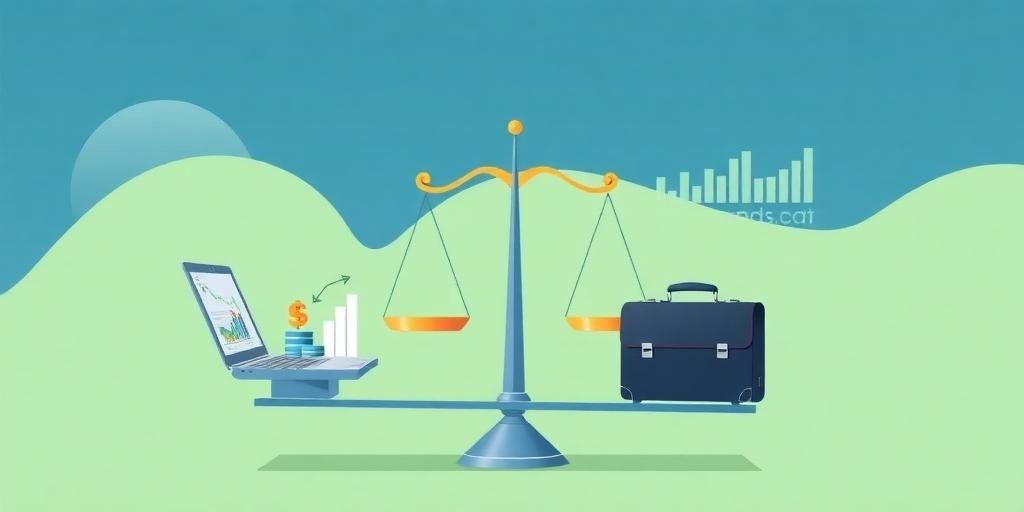Capital gains tax is a tax on the profit you make from selling an asset, such as stocks, bonds, real estate, or other investments. It's a crucial aspect of investing that can significantly impact your returns. Understanding the nuances of capital gains tax is essential for making informed investment decisions.
What are Capital Gains?
Capital gains occur when you sell an asset for more than you bought it for. The difference between the purchase price (your basis) and the selling price is your capital gain. For example, if you buy a stock for $1,000 and sell it for $1,500, your capital gain is $500.
Types of Capital Gains
There are two main types of capital gains: short-term and long-term.
- Short-Term Capital Gains: These apply to assets held for one year or less. Short-term capital gains are taxed at your ordinary income tax rate, which can be higher than long-term rates.
- Long-Term Capital Gains: These apply to assets held for more than one year. Long-term capital gains are generally taxed at lower rates than ordinary income. The specific rates depend on your income level and can range from 0% to 20%.
Capital Gains Tax Rates
The rates for long-term capital gains in 2023 are as follows:
- 0%: For individuals with taxable income up to $41,675, married filing jointly up to $83,350
- 15%: For individuals with taxable income between $41,676 and $459,750, married filing jointly between $83,351 and $517,200
- 20%: For individuals with taxable income over $459,750, married filing jointly over $517,200
It's important to note that these rates can change, so it's always a good idea to consult with a tax professional or refer to the latest IRS guidelines.
How to Calculate Capital Gains Tax
Calculating capital gains tax involves several steps:
- Determine Your Basis: This is typically the purchase price of the asset, but it can also include costs associated with the purchase, such as brokerage fees.
- Calculate the Selling Price: This is the price you sold the asset for, minus any selling expenses like commissions.
- Find the Difference: Subtract your basis from the selling price to determine your capital gain or loss.
- Determine Holding Period: Decide whether the asset was held for short-term (one year or less) or long-term (more than one year).
- Apply the Appropriate Tax Rate: Use the applicable short-term or long-term capital gains tax rate based on your income and holding period.
Strategies to Minimize Capital Gains Tax
Several strategies can help minimize your capital gains tax liability:
- Tax-Loss Harvesting: This involves selling investments at a loss to offset capital gains. This can reduce your overall tax liability.
- Holding Assets Longer Than One Year: To qualify for lower long-term capital gains tax rates, ensure you hold assets for more than a year.
- Investing in Tax-Advantaged Accounts: Retirement accounts like 401(k)s and IRAs can offer tax benefits, such as tax-deferred or tax-free growth.
- Qualified Opportunity Funds: Investing in these funds can provide tax benefits by deferring or eliminating capital gains taxes.
Capital Gains vs. Ordinary Income
It's important to distinguish between capital gains and ordinary income. Ordinary income includes wages, salaries, and self-employment income. Capital gains, on the other hand, are profits from the sale of assets. The distinction is crucial because they are taxed differently.
The Impact of Capital Gains Tax on Investment Decisions
Capital gains tax can significantly influence investment decisions. Investors may choose to hold assets longer to qualify for lower long-term rates or use tax-loss harvesting to offset gains. Understanding these implications can help you make more tax-efficient investment choices.
Conclusion
Capital gains tax is an integral part of investing that requires careful consideration. By understanding the different types of capital gains, tax rates, and strategies to minimize your tax liability, you can make more informed decisions and potentially improve your investment returns. Always consult with a tax professional for personalized advice based on your financial situation.









